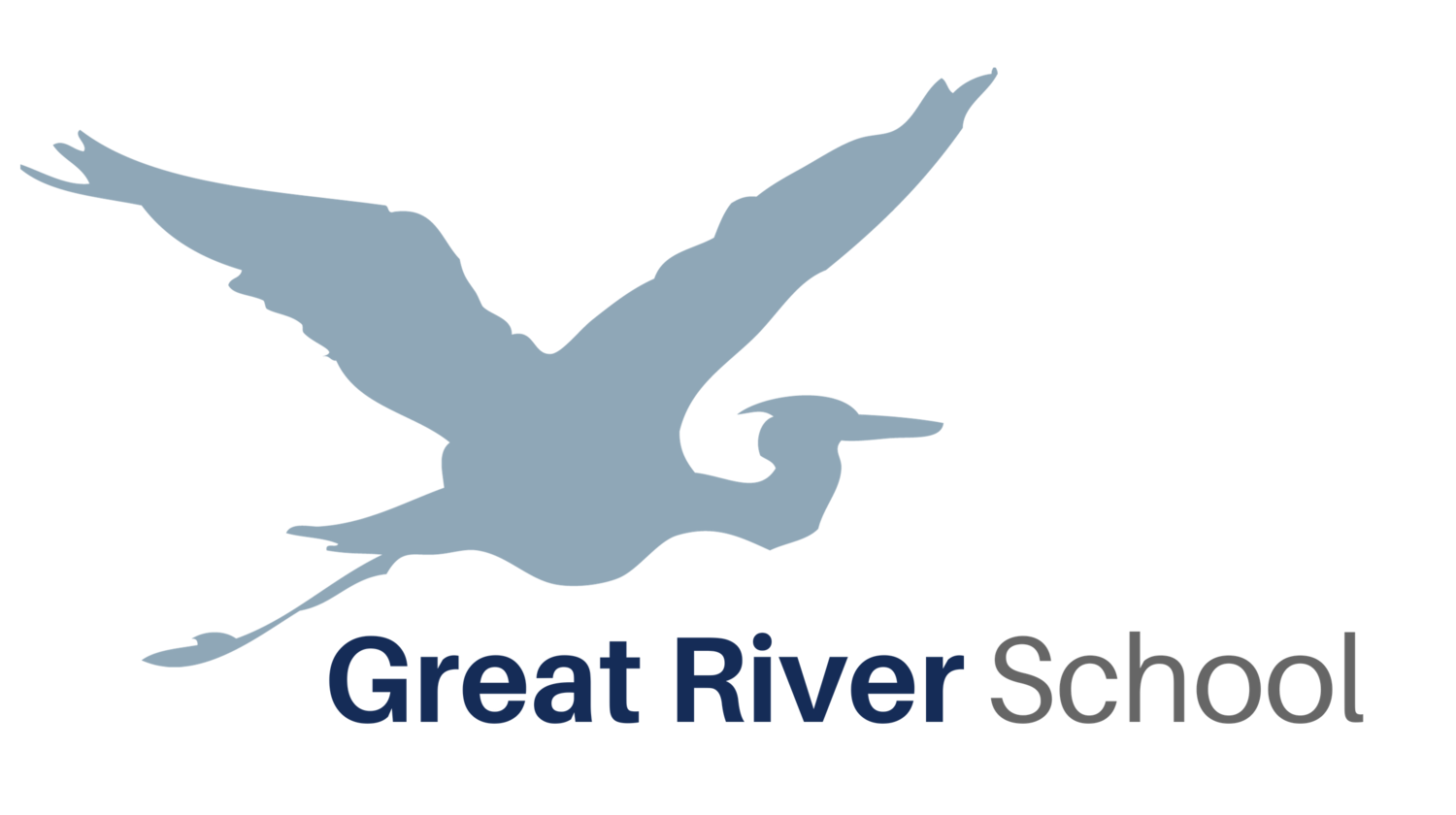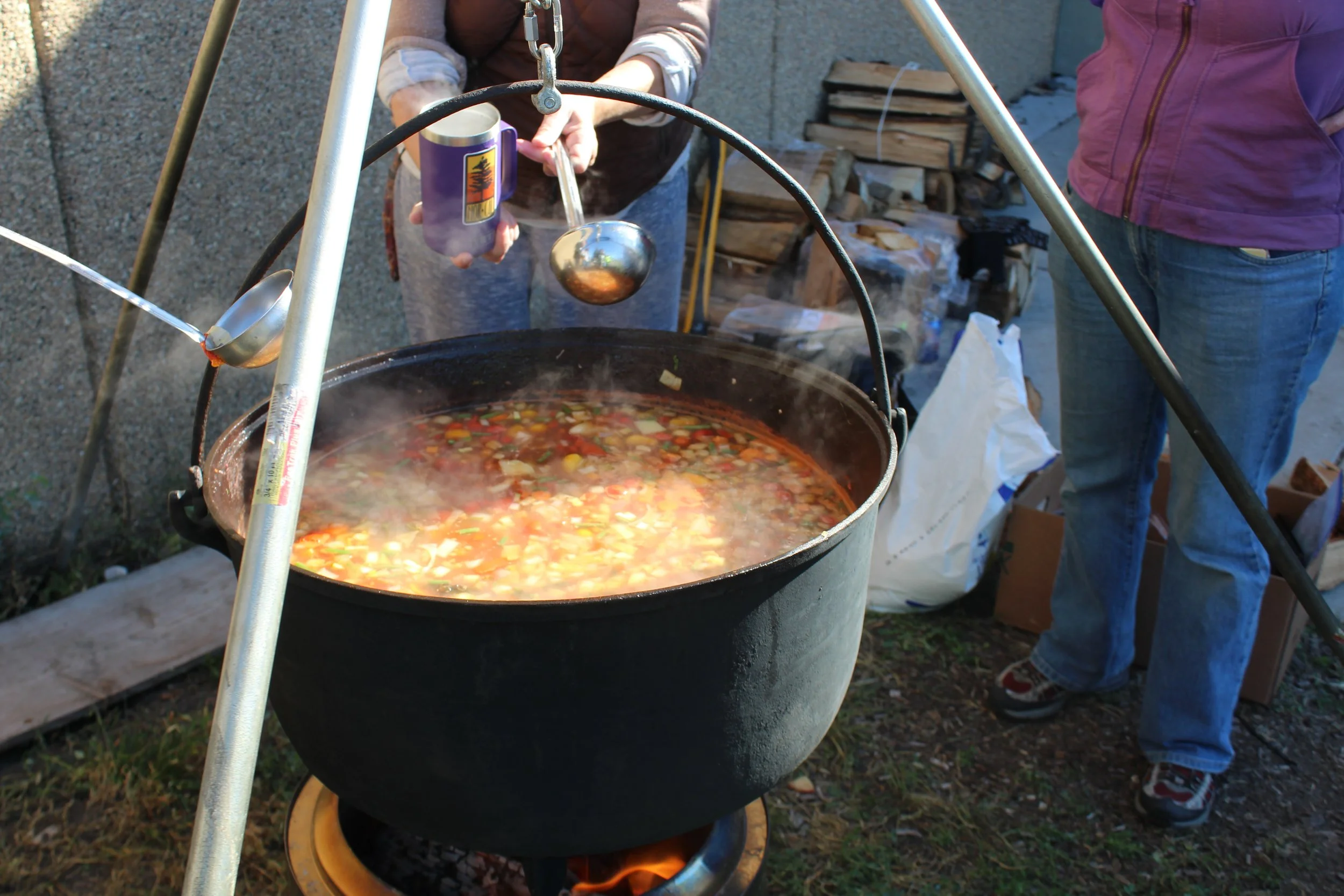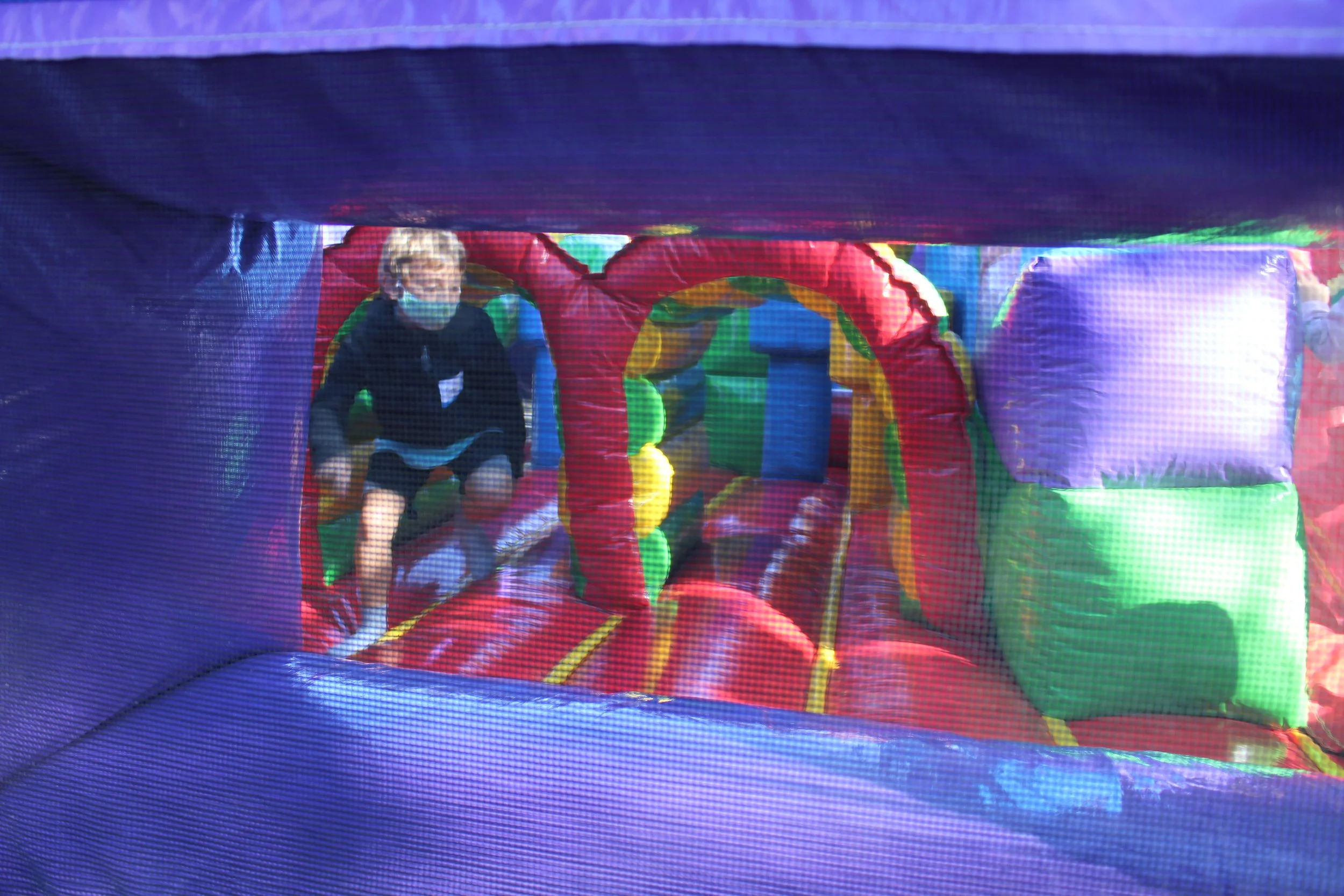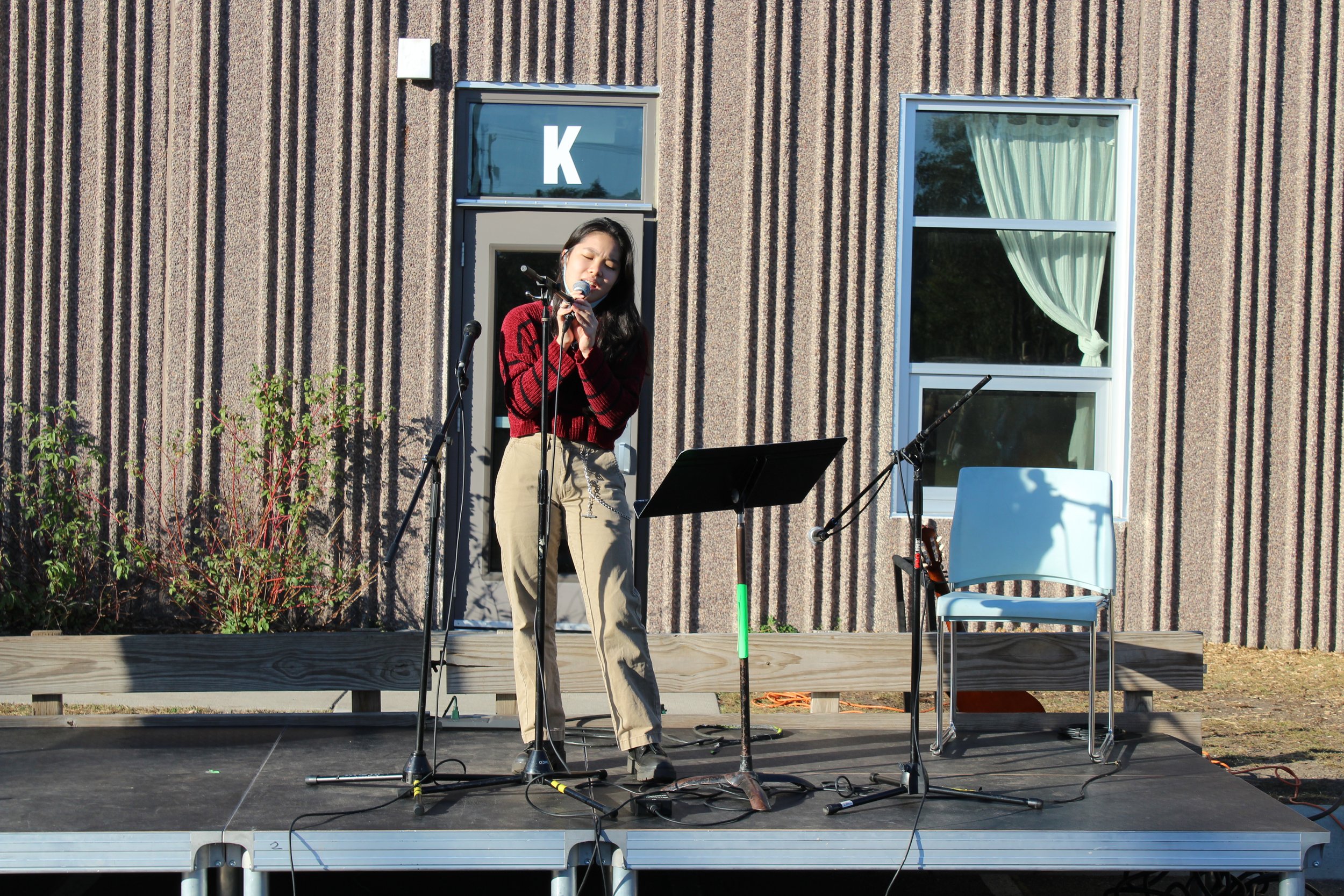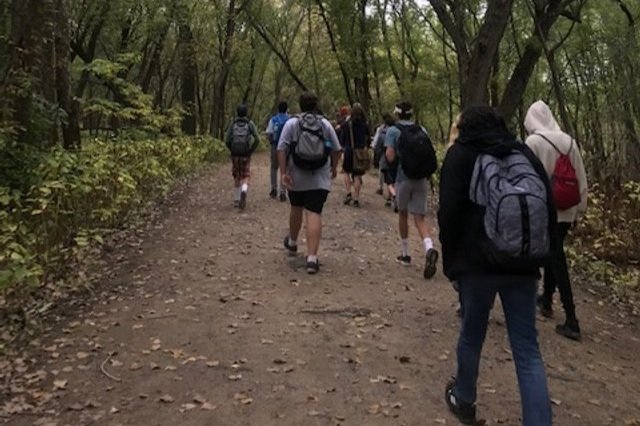(written by Swan River guide Meggie Exner)
Gretchen Kiel (left) and Rayna Goalen (right) from Swan River show off their Imaginary Island Flora and Fauna Guidebooks.
Big work is work that takes up a lot of time or physical space to create. Elementary children in particular are attracted to the challenge of big work. While guides suggest ideas for follow-on after lessons, children are given the freedom to choose how they would like to integrate, practice, or further their understanding of what they have learned - and often what they choose far exceeds our expectations.
Big work appeals to elementary children and supports their learning for several reasons. Children of this age are especially interested in group work. Big work provides an excellent opportunity for children to collaborate in a meaningful way and practice the social skills needed to come to group decisions. Big work also is a source of inspiration and because Montessori classrooms consist of mixed age groups, every child throughout their elementary career will have two opportunities to be be among the youngest in the class, looking up to and being inspired by older children, as well as two opportunities to be among the oldest, providing that inspiration and mentorship to others. Ultimately, big work is a source of pride and confidence and is a way for children to practice pursuing their interests without constraints.
One example of big work currently thriving in the upper elementary are the Imaginary Island projects. Imaginary Island is a summative big work offered to sixth years and sometimes younger children who are interested. During this project, children come up with their own imaginary island, complete with its own government and culture. As children consider the climate and biomes of their island, what imaginary flora and fauna might live there, and how people might have migrated to their island, they draw on their geography, biology, and history work from their previous years in the elementary. We have been thrilled to watch the sixth years delve into these projects with enthusiasm, creating guidebooks, writing stories, drawing maps, and creating models, while, at the same time, modeling the joys of learning to other children.
Alan Husak from Crow Wing displays a scale model of their imaginary island
